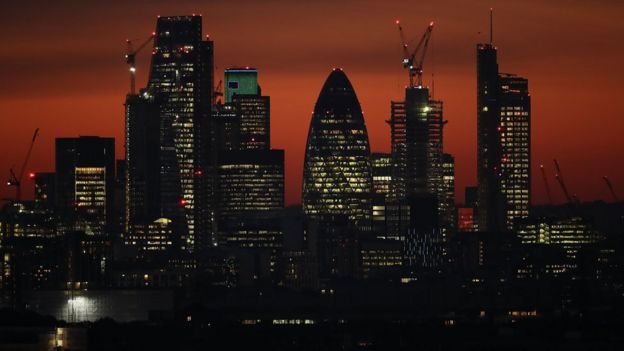Dr. Ikramul Haq in The Friday Times
Nearing 76 years of independence, our leaders in power want to celebrate liberation from colonial rule after pushing the country into a deep debt trap. This paradox depicts what Zulfikar Ali Bhutto highlighted in his masterpiece, Myth of Independence. What makes the situation more painful is the fact that every time a new loan is obtained, those in power express jubilation as if an extraordinary goal has been achieved.
The signing of a nine month US$ 3 billion standby arrangement (SBA) with International Monetary Fund (IMF) on June 29, 2023, was commemorated like August 14, 1947 by Premier Shehbaz Sharif and Finance Minister Muhammad Ishaq Dar et al. The same was the practice in all earlier governments and mindset of previous rulers. This indeed is the worst possible manifestation of our subjugated ruling elites—tragically all governments, civil and military alike, have forced the nation to remain incarcerated in the debt prison.
In 2016, I brought up the burning issue of debt enslavement of Pakistan and the callous attitude of our ruling elites. In 2023, the situation is no different, rather worse. All the six budgets presented by the PML- N government from 2013-2018, four by the Pakistan Tehreek-i-Insaf (PTI) from 2018 to 2022 and two by Pakistan Democratic Movement (PDM) from 2022 to 2023 have common characteristics, with the main emphasis on ensuring economic enslavement through burgeoning debts. The PDM with their fourth-time Finance Minister Ishaq Dar heading the economy has finally obeyed all of IMF’s commands in a revised budget 2023-24, as he did when PML-N obtained a US$ 6.6 billion bailout package in 2013.
Our history of IMF programs is old and seemingly never ending. On December 19, 2019, as per a statement issued by IMF, its Executive Board completed the first review of Pakistan’s economic performance under the Extended Fund Facility (EFF). Completion of the review allowed Pakistan to draw Special Drawing Rights (SDR) 328 million (about US$ 452.4 million), bringing total disbursements to SDR 1,044 million (about US$ 1,440 million). It may be remembered that IMF Executive Board approved the 39-month, SDR 4,268 million (about $6 billion at the time of approval of the arrangement, or 210 percent of quota) Extended Fund Facility (EFF) for Pakistan on July 3, 2019. It was later extended to June 30, 2023, but as in the past ended unsuccessfully with new short term 8-month US$ 3 billion SBA for which complete credit is given by Ishaq Dar to Premier Shehbaz Sharif.
For the coalition government of PTI claiming prior to elections that “we will never beg” obtaining IMF’s US$6 billion bailout was a great “achievement,” though the conditions imposed by the lender of the last resort were the most stringent in our history of getting such packages since 1958.
It is a matter of record that the PTI coalition government secured over US$13 billion in foreign loans in the fiscal year 2019-20 alone! It was the second highest amount in history. Making things more painful was the reality that we started borrowing just “to repay maturing external debt and cushion the shrinking foreign exchange reserves.” During the fiscal year 2017-18, we received gross loans of $13.2 billion from bilateral and multilateral lenders including, IMF and commercial creditors, according to a report, quoting data compiled by the Ministry of Economic Affairs.
Pakistan received $29.2 billion in foreign loans from 2017-2019 that included US$26.2 billion by the PTI government since August 2018. Out of this, US$19.2 billion was used just to repay maturing external debt and the remaining was added to “external public and publicly guaranteed debt.” The resultant increase in debt-servicing as repayments contracted as new foreign loans, increased substantially. For the fiscal year 2020-21, the cost of external debt servicing was estimated at Rs. 315 billion though we had secured over US$300 million or about Rs. 50 billion temporary relief from the G20 group’s moratorium on debt servicing.
In fiscal year 2018-19, Pakistan borrowed US$16 billion, including balance of payments support from Gulf countries, and returned US$9.1 billion worth of loans. In fiscal year 2019-20, gross foreign loans stood at US$13.2 billion and repayments amounted to slightly above US$10 billion. The Ministry of Finance said we did not have any option but “to borrow to repay maturing loans and stabilize foreign currency reserves that dipped below $10 billion in May 2020 after the outflow of hot foreign money of over $3 billion”.
According to a press report, “the withdrawal of hot foreign money, on the one hand, exposed the State Bank of Pakistan’s (SBP) ill planning and on the other highlighted the fragility of foreign exchange reserves that were built on the back of foreign borrowing. The dip in foreign exchange reserves triggered panic borrowing by the economic managers of the PTI government.” Resultantly, the government “started borrowing from the commercial, bilateral and multilateral creditors exceeded the budgetary target due to the dip in SBP’s foreign currency reserves, low inflows under the Saudi oil facility and the decision not to float Eurobonds valuing at $3 billion. The PTI government, like its predecessor, has also been unable to fully capitalize on non-debt creating inflows like exports, remittances and foreign direct investment”, the report added.
Like the previous PML-N government, the PTI also relied on short-term foreign commercial loans. Against the budgetary estimate of $2 billion, it took $3.4 billion in foreign commercial loans. Commercial loans are always considered expensive due to their short maturity period and relatively higher interest rates compared with the official bilateral and multilateral credit. Two Chinese financial institutions, China Development Bank ($1.7 billion) and Bank of China ($500 million), provided about two-thirds or $2.2 billion of total foreign commercial loans. Dubai Bank extended $564 million, Ajman Bank $300 million, Citibank $148 million, Standard Chartered $27 million and Suisse Bank AG $205 million.
The PTI government also sought US$15 billion in gross foreign loans in 2020-21 for debt servicing and building foreign currency reserves in the absence of non-debt creating inflows. Out of the estimated external borrowing of US$15 billion, nearly US$10 billion, or two-thirds, were used to return the maturing loans, excluding interest payments. The pattern under the PDM has not changed, rather assumed further accentuation.
Decades of dependence of local and foreign debts has made Pakistan a weak and vulnerable state—though every government keeps on harping the mantra of having nukes and an unparallel ‘strategic location.’ Now Ishaq Dar after inking fresh SBA with IMF, while terming it a “great success” proudly claimed: “… the government convinced the IMF that it would be very unfair if $ 2.5 billion balance amount of the concluding program was not given to Pakistan… only potential of the mines sector of the country is six thousand billion dollars. Pakistan possesses substantial assets amounting to $3000 billion… We need to make efforts to free our economy from foreign aid.”
It may be remembered that on concluding talks with IMF in 2018, the PML-N government proudly announced: “this is the first time we have successfully completed the program in 15 years and the sixth in its 58-year relationship with IMF.” The detail story of that sordid subjugation and what happened thereafter was highlighted here in 2019 and more recently on this paper’s pages.
IMF Agreements (1958-2023)
Since 1958, Pakistan has entered into 23 programs with the IMF. On December 8, 1958 the military government signed a one-year Standby Arrangement (SBA), which it terminated prematurely in nine months. The second SBA was signed on March 16, 1965 and concluded on March 15, 1966. Yet another one-year SBA completed on May 17, 1973. The fourth SBA, signed on August 11, 1973, ended on August 10, 1974. The fifth one was on November 11, 1974 and concluded on November 10, 1975. The sixth was signed on March 9, 1977—it was terminated exactly after one year. On November 24, 1980, an Extended Fund Facility (EFF) was concluded which lasted for three years—ended on November 23, 1983. After a gap of five years, two simultaneous programs, Structural Adjustment Facility (SAF) and SBA were signed on December 28, 1988. Both continued beyond the agreed timeframe and ended in 1990 and 1992, respectively.
The ninth program, again a one-year SBA, was signed on September 16, 1993 but was terminated prematurely on February 22, 1994. The 10th program comprised two separate facilities—SAF and EFF—signed on February 22, 1994 for a period of three years. However, both the facilities were terminated much before maturity—on December 13, 1995. The 11th SBA was signed on December 13, 1995. It ended on September 30, 1997. The 12th program was of two separate facilities, the Poverty Reduction Growth Facility (PRGF) and an EFF. Both were signed on October 20, 1997 and continued till October 19, 2000. Under the 13th program, another SBA was signed on November 29, 2000 and continued until September 30, 2001.
The 14th Extended Credit Facility/PRGF was signed on June 12, 2001 and terminated on May 12, 2004. A three-year SBA was signed on November 24, 2008 but was prematurely terminated on September 12, 2010 after Pakistan could not initiate tax and energy reforms. The PML-N signed an agreement in September 2013 and was successfully completed. The PTI government’s US$ 6 billion extended EEF ended unsuccessfully on June 30, 2023. Under the just concluded SBA, the IMF would give US $3 billion dollars within a period of nine months and the first tranche of the US$ 1.1 billion would be released after the IMF board meeting in mid July 2023.
Finding the right path
Managing a high fiscal deficit coupled with massive debt burden is the toughest challenge faced by our economic managers. The obvious and undisputed solution is substantial increase in resources and drastic reduction in spending, but it is easier said than done. For the last many decades, Pakistan’s fiscal policy has remained under immense pressure owing to perpetual failure of underperformance of Federal Board of Revenue (FBR), continued security related outlays, rise in wasteful expenditure and greater than targeted subsidies, losses of State-owned Enterprises (SOEs) etc. Other alarming elements remained great fiscal deficit, sluggish exports and high imports.
The burgeoning fiscal deficit and ever-increasing debt burden are not isolated phenomena. These are related to lack of political will to undertake fundamental structural reforms, enforce fiscal discipline, crackdown on parallel economy, increase tax collection, abolish perks and benefits of the ruling elites, eliminate wasteful expenses, dismantle rent-seeking structures, ensure rule of law, and stop reckless borrowing and ruthless spending. The perpetual failure to tap the actual tax potential has forced successive governments to rely more and more on external and internal borrowings, pushing the country into a ‘debt prison.’ In the just ended fiscal year 2023, the FBR failed to meet even the original target of Rs. 7470 billion, what to speak of the revised figure of Rs. 7640 billion even after mini budget, levying additional oppressive taxes of more than Rs. 270 billion through the Finance (Supplementary) Act of 2023 and Tax Laws (Amendment) Act, 2023.
Collection of below potential revenue of Rs. 7.15 trillion (provisional) by FBR has raised serious questions about the State’s ability to meet its needs, in fact to ensure its economic viability, Collection of Rs. 16 trillion at federal level alone is not possible without restructuring the entire tax system for enhancing revenues to decrease/eliminate the burgeoning fiscal deficit, which is estimated at Rs. 7.5 trillion in the federal budget of 2023-24 . Even in the revised budget of 2023-24 and Finance Act 2023 approved on June 21, 2023, there is nothing to tax the high net-worth rich and mighty sections of society through progressive direct taxation.
Taxes are byproduct of economic growth and the new federal and provincial governments after general elections 2023 should not impose further oppressive taxes even if suggested by IMF. New vistas of non-tax revenues should be explored by making locked assets productive, ending circular debt and losses in SOEs, and drastic cut in wasteful non-development expenditure. Efforts should be made to achieve high economic growth of over 7 percent for a sustainable period of at least one decade.
Are we ready to put our house in order through fundamental structural reforms? Nadeem Ul Haque, Vice-Chancellor of Pakistan Institute of Development Economics (PIDE) has very rightly pointed out: “The IMF or no donor or external friend can help us with putting our house in order. We have to build a modern state and a modern society that is responsible and ready to participate in the global economy of the 21st century. Without that we will continue to bleed and require the IMF again and again.”
Let us take the example of Finland, a small country of 5.56 million people with GDP of nearly US$ 300 billion in 2022 (Pakistan with population of 225 million has a GDP of around US$ 350 billion, it was US$ 348.3 billion in 2021). In 2022, Finland’s tax-to-GDP ratio was 43 percent and ours only 10.1 percent.
Unfair taxation is the biggest impediment in the way of economic and industrial growth. What a tragedy that the rich and mighty get VIP facilities, plots, perks and benefits at taxpayers’ expense. They are the beneficiaries of the state’s resources—generated mainly by the poor farmers, suppressed landless tillers and toiling industrial workers. Pakistan is not a poor country—the state’s kitty is empty because of unwillingness of the rich to pay due taxes, the colossal wastage of taxpayers’ money on unproductive expenses and non-exploitation of vital natural and human resources.
Absentee landlords, a list which now include mighty generals who have been allotted State lands under award and rewards, have been resisting proper personal taxation on their enormous income and wealth. This anti-people alliance of military-judicial-civil complex, corrupt and inefficient politicians and greedy businessmen controlling and enjoying at least 90% the State resources contribute less than 2% towards national revenue collection and nobody talks about it.
We can easily generate taxes of Rs. 16 trillion through FBR alone. The dire need in today’s Pakistan is rapid industrialization, especially promoting agro-based industries to provide employment to the poor rural population and ensure fair distribution of resources to reduce inequalities. The IMF or any other donor will not tell us how to achieve these goals. We will have to promote research to find our own solutions to become a modern and dynamic nation as pleaded by Dr. Nadeem Ul Haque and many others.
Resource mobilization should be given priority to build infrastructure, facilitate growth of small and medium sized firms in the industrial sector and small farms in the agricultural sector for an employment intensive and equitable economic growth process. To end economic apartheid, large corporations, especially loss-bearing SOEs, with equity stakes for the poor can be established through public-private partnerships. This would set the stage for a structural change that could help achieve economic growth for the people and by the people, which is presently confined to the elites only.

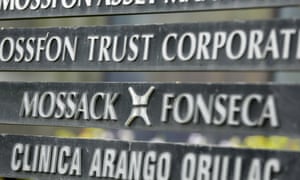
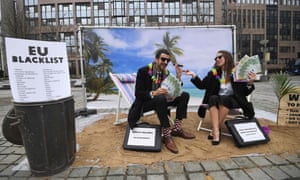
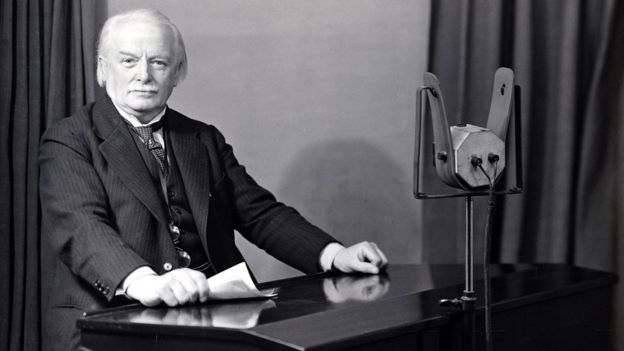
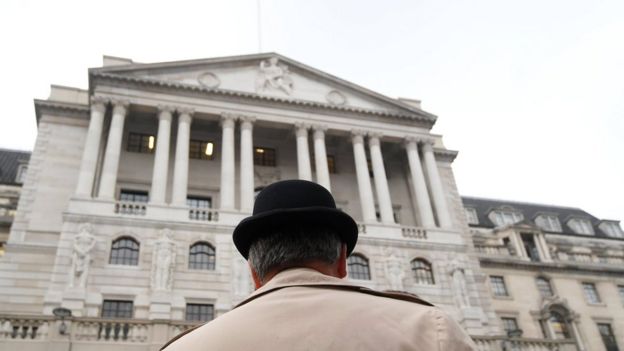 Image copyrightREUTERSImage captionThe Bank of England did not get its way against the Treasury
Image copyrightREUTERSImage captionThe Bank of England did not get its way against the Treasury